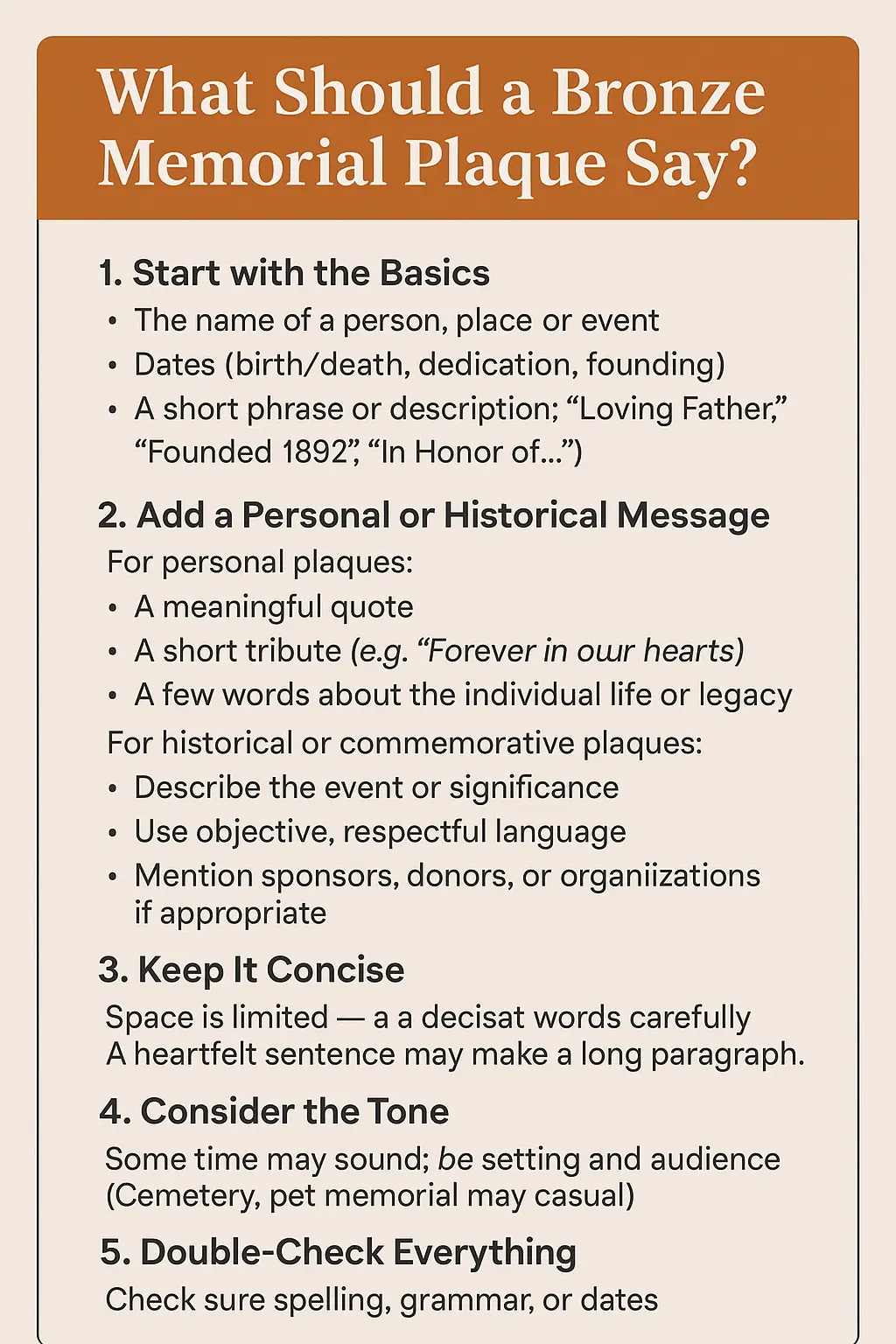Choosing the right words for a bronze plaque isn’t always easy. Whether it’s for a loved one, a historic event, or a place of significance, the message you choose will likely last for decades—if not centuries. That makes every word count.
So, what should you include?
1. Start with the Basics
At the core of nearly every plaque are the essential details:
The name of the person (or place or event)
Dates (birth/death, dedication, founding, etc.)
A short phrase or description (e.g., “Loving Father,” “Founded 1892,” “In Honour of…”)
These form the foundation of your message. Keep them clear and accurate.
2. Add a Personal or Historical Message
For personal plaques, consider:
A meaningful quote
A short tribute (e.g., “Forever in our hearts”)
A few words about their life or legacy
For historical or commemorative plaques:
Describe the event or significance
Use objective, respectful language
Mention sponsors, donors, or organisations if appropriate
3. Keep It Concise
Space is limited on most plaques, and bronze is best read at a glance. Choose your words carefully. A heartfelt sentence often carries more impact than a long paragraph.
4. Consider the Tone
A cemetery plaque may need a formal or solemn tone, while a garden tribute or pet memorial might be more casual or poetic. Think about the setting and the audience.
Popular Phrases for Inspiration:
“In Loving Memory”
“Gone But Not Forgotten”
“A Life Well Lived”
“Forever Missed, Forever Remembered”
“He Lived With Honour”
“She Brought Joy to All Who Knew Her”
5. Double-Check Everything
Before it goes to casting, check spelling, grammar, and dates. Bronze plaques are made to last—mistakes are costly and hard to fix.
Need Help Choosing the Right Words?
At www.bronze-plaque.com, our design tool lets you preview your wording before you buy. You can experiment with different messages and layouts until it feels just right.






